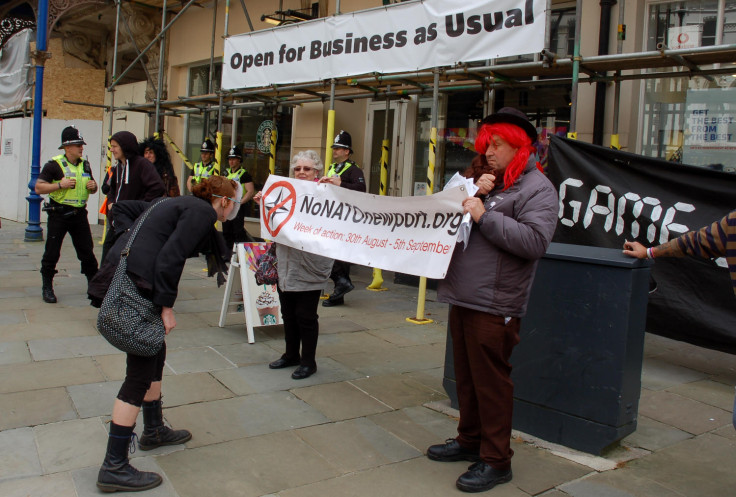Nato Summit 2014: What is on the Agenda?

World leaders will meet in Newport this week, 12 miles from Cardiff, for the Nato Summit 2014.
When the news broke earlier this year that the Welsh city was to host some of the world's most powerful ministers, it was expected that the agenda would be dominated by Afghanistan, with Nato likely to congratulate itself on the conclusion of what David Cameron called "mission accomplished" (critics of the conflict would beg to differ).
But on the eve of the event, the agenda has changed drastically, with events since the turn of the year in eastern Ukraine meaning Nato's frayed relationship with Russia is likely to dominate.
Here's a rundown of the burning issues ahead of the Nato Summit.
Russia and Ukraine
While it's highly unlikely there will be Nato boots on the ground in eastern Ukraine, the indication is there will be some announcement over Nato bases in Eastern Europe, close to the Russian border.
Last week, it was reported Poland and the three Baltic states requested Nato focus its anti-ballistic missile defence system on Russia. The system is largely based in Romania and is designed to protect Europe from belligerent "rogue states". Given the recent rhetoric from Nato member states, it's clear Russia is viewed as falling firmly into this bracket.
There is also likely to be news as to what sort of military support Nato will offer the Ukrainian armed forces. The package currently under discussion seems more long-term: modernisation of arms and systems. Ukraine's Prime Minister Petro Poroshenko, who will attend the summit, is likely to push for more immediate assistance.
"What Ukraine are looking for now is more direct military assistance in the form of weapons, ammunition and intelligence data. Here I think the alliance might struggle to make an agreement. A number of members want to stick to diplomatic channels and avoid the impression that Nato is escalating the tensions on the ground," Lukasz Kulesa, the research director at the European Leadership Network told IBTimes UK.
However, individual Nato members that wish to provide arms are likely to have the freedom to make their own decision.
Ukraine Membership
Ukrainian ascension to Nato has been on the agenda since 2008, when members made an open-ended pledge at the Bucharest Summit to allow Georgia and Ukraine to join Nato at an as yet specified future date. It's very unlikely this will happen any time soon.
Article 5 of the Nato Charter states an attack on any member state shall be considered to be an attack on all. It's only been invoked once: after the September 11 attacks that led to Nato launching operations against terrorist cells and, eventually, invading Afghanistan and Iraq.
"It can't happen now, not in the present conditions. You can't give the retrospective guarantee that the accord has already been breached," the Labour MP for Newport West Paul Flynn told IBTimes UK.
"My main concerns would be for the Baltic states. Already, there's been [Russian President Vladimir] Putin-inspired cyber-attacks on Estonia. Both Estonia and Latvia have large Russian mother tongue populations that could well be used in the way Putin's used those in Ukraine. There's potential for serious problems."
Sanctions
While trade and economic sanctions are not ordinarily the preserve of Nato, it would be unusual if they weren't discussed, given the seniority of those in convention.
"Most directly connected to the summit agenda is the issue with arms deliveries to Russia," said Kulesa. "The EU said future deals with Russia are banned but nothing was said about contracts concluded in the past."
Scottish Independence
Many column inches have been devoted to the issue of a potentially independent Scotland keeping Nato membership. However, analysts expect the issue will not be discussed formally at the summit in Newport. Officials are unlikely to want to sway public opinion, with voters set to head to the ballot box for the referendum on 18 September.
Should there be a "Yes" vote, it would be unprecedented for Nato. The closest parallel is with the reunification of East and West Germany in 1990, which led to the reformed Germany retaining full Nato membership.
"With Scotland, if there's a very clear willingness to join Nato as it is, there wouldn't be too many problems," Kulesa said.
The country is politically stable and is likely to have a proportionate armed forces. The main issue could be the nuclear question: given the SNP's indignation over Trident, surely any entertaining of Nato's nuclear-sharing programme would be a massive piece of political backtracking?
Afghanistan
It may not be the main event anymore but the situation in Afghanistan will still be high on the agenda. However, given the Afghan electoral process is not finished, there is no permanent government in place in Kabul.
It was reported earlier this year that if the US failed to reach a security agreement with Afghanistan, the Nato troops would withdraw by the end of 2014. The clock is ticking and with no negotiation partner in place in Afghanistan, it's looking more likely troops may remain into 2015.
"I think they'll be self-congratulatory about Afghanistan and say it's mission accomplished. Something that Cameron has said. It's untrue, it's not mission accomplished. The problems are almost as bad now as they were," said Flynn, one of the UK's strongest critics on the wars in Afghanistan and Iraq.
© Copyright IBTimes 2024. All rights reserved.






